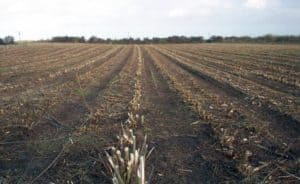 Replacing fossil fuels with bioenergy only takes us backwards, continuing our addiction to burning and extraction, and causing extensive ecological damage.
Replacing fossil fuels with bioenergy only takes us backwards, continuing our addiction to burning and extraction, and causing extensive ecological damage.
The bioenergy industry gives the impression of being at the forefront of tackling climate change. Every wood pellet that’s burned communicates the illusion of innovative progress away from fossil fuels and towards ‘renewable’ energy.
In the context of our urgent need to reduce greenhouse gas emissions, it is easy to be persuaded by a strategy which can supposedly help steer us away from impending doom.
Before I took my job working to protect forests I was under the impression that bioenergy was something positive.
Capitalism growth
Since humans first discovered how to create fire about 1.5 million years ago, our ability to harness the flames has sustained us, warmed us, and fed us.
Most of the world is fiercely globalised and intensely capitalist, focusing on – or subjected to – short-term economic gain.
Societies in the global north have become demanding and consumerist, reaching ever further afield for products to satisfy our desires. We have plunged deep into oil wells, and exploited pristine, ecologically priceless ecosystems in the Arctic and Amazon.
Burning […]











I’ve read the article, Stephan and the associated links in vain, as they may apply to your neighbours on Whidbey Island and here in Nova Scotia. I see plenty about biomass pellets used for the generation of electricity, with which I agree, but, no mention about burning wood to heat homes in rural areas. Yes, it’s cheaper to burn trees for heat in our northern winters. I do it too. Many of us have limited access for income generation being on fixed incomes. I’d love to erect a set of PV panels to offset the coal our province would burn to heat this place. It would take 12 to 15 years to amortize that capital outlay, if I had access to it. Then at that time, the system would need repair, as all tech fixes do.